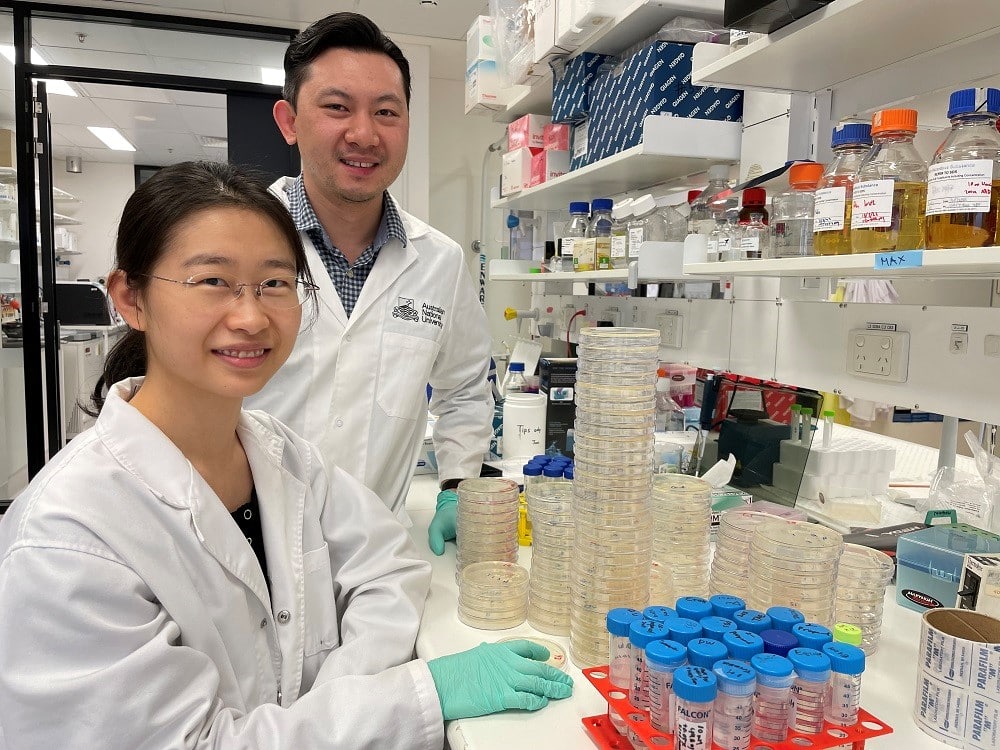A specific group of bacteria-killing proteins inside the immune system could hold the key to developing smarter and more effective drugs capable of eliminating certain infectious diseases including meningitis, pneumonia and sepsis, according to scientists from The Australian National University (ANU).
In a new study published in Nature Communications, the ANU researchers demonstrate the potential of these immune proteins, known as guanylate-binding proteins (GBPs), to directly bind to and kill specific types of bacteria.
In addition to laying the foundation for new treatments, these killer proteins can also be used in combination with existing antibiotics to give doctors more options when treating certain types of infectious diseases.
Lead author and PhD scholar Shouya Feng, from The John Curtin School of Medical Research (JCSMR), said this specific type of protein works by “busting open” bacteria – similar to an axe splitting wood in two – destroying the membrane and causing it to die.
“Our immune system is equipped with weapons that can destroy germs. When foreign bodies, such as bacteria, enter our body the immune system triggers a defensive response,” Ms Feng said.
“We believe we can extract and harness the power of these immune system proteins, known as GBP1, and use them to treat a range of infectious diseases, without negatively affecting our body’s cells.”
Co-author Professor Si Ming Man, also from JCSMR, said disease-causing microbes are continually adapting to and outsmarting current drug treatments, and scientists are always looking to uncover new ways to develop more effective solutions.
According to research carried out by the World Health Organization (WHO), drug-resistant diseases already cause about 700,000 deaths globally each year. By 2050, that figure is estimated to climb to 10 million.
“The extensive use of antibiotics to treat a number of different infectious diseases over many years has made them less effective over time because microbes are continually developing resistance to new and existing treatments, meaning they’re staying one step ahead of scientists,” Professor Man said.
“We are now finding more and more GBPs that can kill different types of drug-resistant bacteria. This includes bacteria that can cause meningitis, pneumonia and sepsis.
“The ultimate goal is to use these proteins to eliminate meningitis, pneumonia and sepsis entirely.
“Our research could provide alternatives to increasingly over-used and ineffective antibiotics by offering new methods to combat these multidrug-resistant infections.
“We expect this work could lay the foundations for a new framework to inform how we can fight continually-evolving diseases for decades to come,” he said.
Get local, national and world news, plus sport, entertainment, lifestyle, competitions and more delivered straight to your inbox with the Canberra Daily Daily Newsletter. Sign up here.



